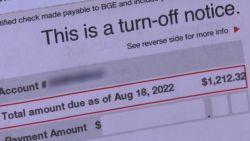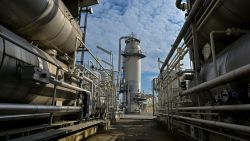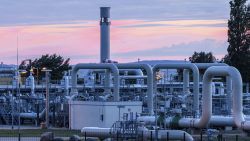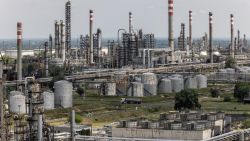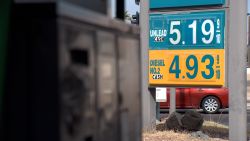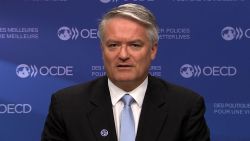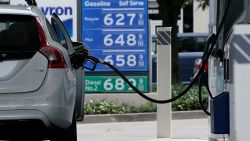BP is writing down the value of its assets by as much as $17.5 billion as a shift away from fossil fuels is accelerated by the coronavirus pandemic.
The UK oil company said in a statement Monday that the health crisis could have an “enduring impact on the global economy,” resulting in less demand for energy over a “sustained period,” and it cut its forecast for Brent crude prices over the next three decades by 27% to $55 per barrel.
Lower prices mean the company’s assets, including untapped oil and gas reserves, are worth less. BP (BP) said it would write down the value of its assets by between $13 billion and $17.5 billion, or as much as 6% of the total, when it reports earnings for the second quarter on August 4. The company may also stop developing some oil and gas fields as it invests in cleaner energy.
“BP’s management … has a growing expectation that the aftermath of the pandemic will accelerate the pace of transition to a lower carbon economy and energy system, as countries seek to ‘build back better’ so that their economies will be more resilient in the future,” it said in its statement.
Shares in the company fell 5% in London before recovering some lost ground.
“I am confident that these difficult decisions — rooted in our net zero ambition and reaffirmed by the pandemic — will better enable us to compete through the energy transition,” CEO Bernard Looney said in a statement.
BP had already pledged to cut greenhouse gas emissions from its global operations, as well as emissions that result from the oil and gas it produces, to net zero by 2050. By the same date, the company aims to halve the carbon intensity of the products it sells.
The coronavirus pandemic hammered demand for oil, gas and coal, with factories shut, planes grounded and motorists ordered to stay at home. Brent crude, the global benchmark, which collapsed to its lowest level in over 20 years in April, has more than doubled in price since then but is still down 42% this year.
BP announced last week that it would cut 10,000 jobs, or nearly 15% of its workforce, to reduce costs. In an email to employees, Looney said that the oil price has plunged “well below” the level needed to turn a profit. “We are spending much, much more than we make,” he said.
Peak oil?
The International Energy Agency said last month that oil demand could drop by 9 million barrels a day this year on average, returning consumption to 2012 levels.
Consumption is gradually recovering as lockdown restrictions are lifted around the world, but oil companies face a bleak longer term outlook. Some analysts are warning that demand may never return to its 2019 record high as the pandemic accelerates shifts that were already underway in energy markets, such as the switch to renewables, and has a lasting impact on the way people work and travel.
Some governments are using such behavioral shifts, and the crisis more broadly, to invest in clean energy and pivot their economies away from fossil fuels.
France’s $17 billion support package for Airbus (EADSF) and the country’s wider aviation industry includes funds for research and development, with the goal of producing a carbon neutral aircraft in 2035. The bailout of Air France-KLM also includes new environmental commitments.
Germany, meanwhile, is spending billions of euros on subsidies that will slash the price of electric cars, which the government says is part of a drive to get to a carbon neutral economy by 2050.
Unlike rival Shell, BP has so far resisted pressure to cut payouts to shareholders, despite a $6 billion increase in its net debt in the first quarter. The board has said it will consider whether it can afford to pay dividends on a quarterly basis.
— Julia Horowitz and Charles Riley contributed to this report.



